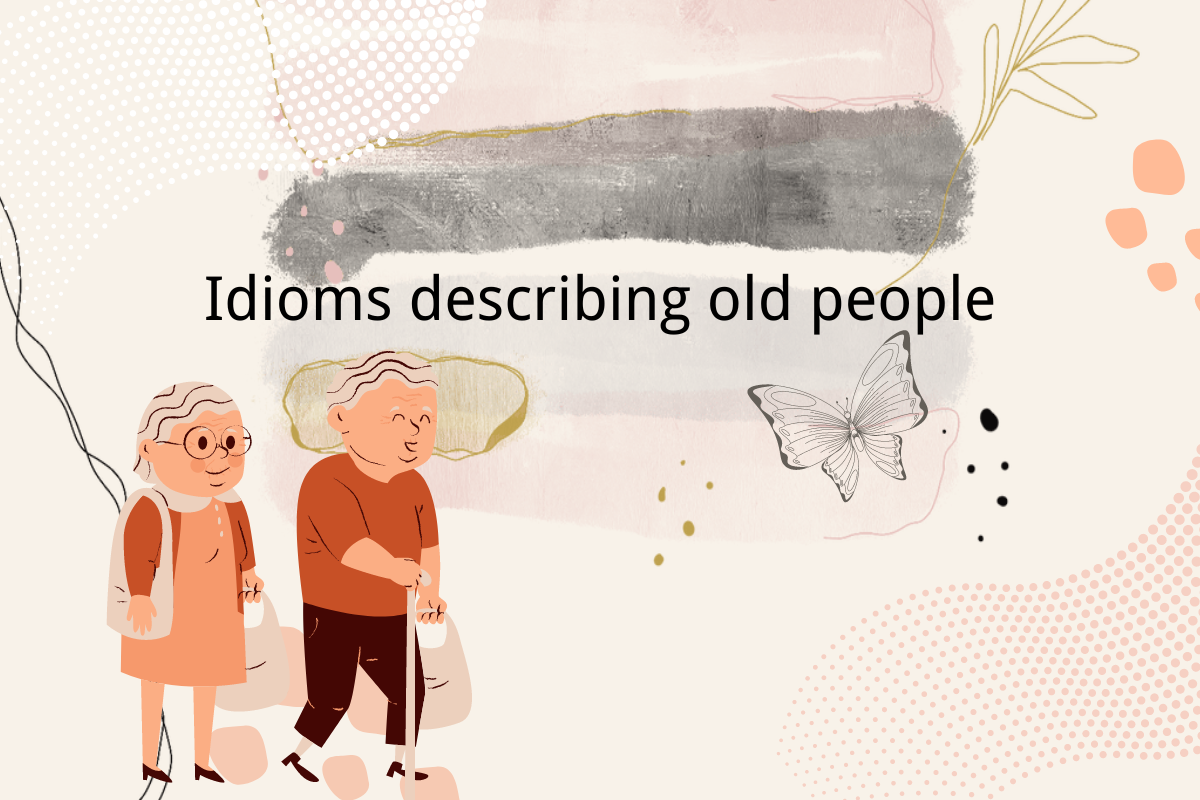Idioms Describing Old People Part 2
In every culture, idioms serve as concise expressions of complex ideas and experiences. When it comes to describing the elderly, idioms in various languages capture the essence of aging, reflecting the wisdom, resilience, and dignity that come with advancing years. Let's explore two evocative idioms—"老当益壮" (lǎo dāng yì zhuàng) and "年事已高" (nián shì yǐ gāo)—and discover how they portray the strength and maturity of old age.

老当益壮 (lǎo dāng yì zhuàng): Growing Stronger with Age
In Chinese culture, the idiom "老当益壮" conveys the idea of becoming stronger and more vigorous with age. It suggests that as people grow older, they can harness their accumulated knowledge, experience, and resilience to overcome challenges and achieve even greater feats. This idiom celebrates the vitality and resilience of the elderly, highlighting their ability to thrive and flourish despite the passage of time. When we use "老当益壮" to describe old people, we are acknowledging their strength 力量 (lì liàng), vitality, and continued growth throughout life.
力量 (lì liàng), noun, strength
Examples:
- She showed great strength during the competition.
她在比赛中表现出了巨大的力量。
tā zài bǐsài zhōng biǎoxiàn chūle jùdà de lì liàng. - The team's strength lies in its unity.
团队的力量在于团结。
tuánduì de lì liàng zài yú tuánjié.

年事已高 (nián shì yǐ gāo): Advanced in Years
The idiom "年事已高" reflects the acknowledgment of an individual's advanced age and the respect accorded to them as a result. It recognizes the passage of time and the accumulation of experiences that come with aging. Despite the physical 身体的 (shēn tǐ de) limitations that may accompany old age, this idiom underscores the wisdom, maturity, and dignity that characterize individuals who have lived a long life. When we refer to someone as "年事已高," we are acknowledging their life journey and honoring their contributions to society and family over the years.
身体的 (shēn tǐ de), adj, physical
Examples:
- Regular exercise is important for maintaining good physical health.
经常锻炼对保持良好的身体健康很重要。
Jīngcháng duànliàn duì bǎochí liánghǎo de shēntǐ jiànkāng hěn zhòngyào. - She suffered physical injuries after the car accident.
她在车祸后受了身体伤害。
Tā zài chēhuò hòu shòule shēntǐ shānghài.
Beloved Idioms in Chinese Culture
Chinese people cherish the idioms "老当益壮" (lǎo dāng yì zhuàng) and "年事已高" (nián shì yǐ gāo) due to their embodiment of respect for the elderly and admiration for their wisdom and life experiences. Firstly, "老当益壮" expresses the Chinese aspiration for the continual progress and growth of the elderly. In Chinese culture, elders are revered as sources of wisdom, growing stronger and wiser with the passage of time. This idiom reflects the praise and well-wishes for their ongoing vitality and positive spirit. Secondly, "年事已高" demonstrates the respect and reverence accorded to the elderly in Chinese culture. Elders are regarded as the pillars of families and society, with their age, experiences, and wisdom considered invaluable treasures.
Key Sentences:
- Although he is already seventy years old, his body is still very healthy, demonstrating the spirit of growing stronger with age.
虽然他已经七十岁了,但他的身体仍然很健康,展现出老当益壮的精神。
Suīrán tā yǐjīng qīshí suìle, dàn tā de shēntǐ réngrán hěn jiànkāng, zhǎnxiàn chū lǎo dāng yì zhuàng de jīngshén. - Although she is already advanced in years, her mindset is still very youthful, full of vitality.
虽然她已经年事已高,但她的心态仍然很年轻,充满了活力。
Suīrán tā yǐjīng nián shì yǐ gāo, dàn tā de xīntài réngrán hěn niánqīng, chōngmǎnle huólì. - Although this old man is advanced in years, he still insists on getting up early every day to exercise.
这位老人虽然年事已高,但他仍然坚持每天早起锻炼身体。
Zhè wèi lǎo rén suīrán nián shì yǐ gāo, dàn tā réngrán jiānchí měitiān zǎoqǐ duànliàn shēntǐ.